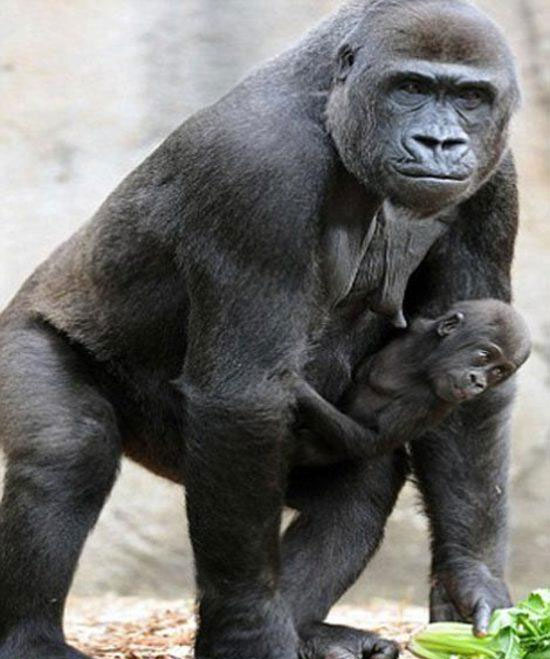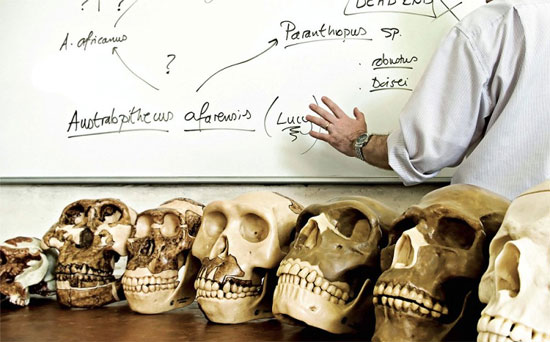New shocking disclosure of human ancestors
The new theory of evolution is highly controversial, including the hypothesis that human ancestors were aquatic primates that had more authentic evidence.
The content of this theory is primates that appear under water, lose their hair, then have the ability to stand upright and develop the brain.
Appeared 50 years ago but this theory is not respected by scientists. Only one group of scientists supported.

Our ancestors left the tree to live under and near the water?
Scientist Peter Rhys Evans, one of the proponents of this theory, said that humans are much different from primates: we have no fur, can stand upright, have a big brain and have fat under it. skin, with larynx - characteristics of aquatic animals.
According to evolution theory, these characteristics appear at different times, for different reasons. But the theory of evolution from underwater primates makes these characteristics appear when our ancestors decided to live below or near the water millions of years ago.
British biologist Sir Alister Hardy was the first to make this theory of evolution. Accordingly, primates from trees move down to live in lakes, rivers, seas - places where food is abundant.
Our standing upright is because our ancestors tried to keep their heads on the water. Subcutaneous fat is developed to keep the body warm when under water.

Omega-3 found in seafood helps the brain grow as well
prove that our ancestors were underwater primates?
Rhys Evans, a head and neck physiologist at London's royal hospital Marsden, thinks that the space between the cheek, nose and forehead works like a float to keep the head floating on the water.
Proponents of this doctrine have further evidence that Omega-3 fatty acids in seafood food have promoted brain development in mammals.
In the future, this group of supporters of evolutionary theory will hold a big meeting in London with the participation of many scientists.
- This horror creature turns out to be the oldest human ancestor
- Why do the ancient ancestors of human beings walk on two legs?
- Prove human ancestors of Asian origin
- Shocking disclosure of hygiene on aircraft
- The shocking discovery of snakes and evolution of the human eye
- Sexual revolution of human ancestors
- The reason the human ancestors gave up cannibalism
- Human ancestors are jellyfish?
- This is a human face if evolved from other animals that are not apes!
- Human ancestors can walk with their legs but most still live on trees
- Discover the earliest ancestors of humankind
- See 550 million years of human evolution in 1 minute
 Discovered an ancient centipede fossil 99 million years old
Discovered an ancient centipede fossil 99 million years old Discovered bat-like dinosaurs in China
Discovered bat-like dinosaurs in China Discovered a 200-year-old bronze cannon of the coast
Discovered a 200-year-old bronze cannon of the coast Discover 305 million-year-old spider fossils
Discover 305 million-year-old spider fossils